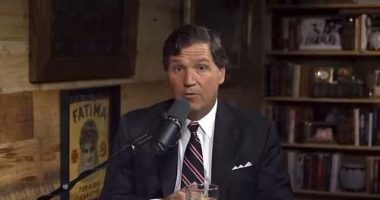Speaking at a second parliamentary economics committee, Lowe said the central bank was aware that there was a “lag” between interest rates increasing and Australian households cutting back on spending.
He noted that this year 880,000 loan facilities will come off fixed rates and onto their lenders’ variable offerings – which have jumped dramatically since the loans were taken out at the record-low level of 0.1 per cent.

“The finances of many households are under very real pressure from high inflation including higher rent, they are under pressure from higher government rising interest rates and falling housing prices, so it is a really challenging environment for many people at the moment,” he said.
“We recognise that the full effect of higher interest rates is yet to be felt, with some borrowers still benefiting from low interest rate loans.”

Australia’s top 10 richest people for 2023
“In total there are around 880,000 loan facilities with fixed rates maturing this year. These loan facilities have an outstanding value of around $350 billion,” he said.
“These borrowers will face a very significant increase in their loan repayments when they move from the fixed rates to the variable rate loan.”
Despite this lag, Lowe said borrowers should expect more hikes to come.
”Based on the currently available information, the board expect that further increases will be needed over the months ahead to ensure that inflation returns to target,” he said.
Nothing keeps Lowe ‘awake’ at night
Read Related Also: Chris Hipkins to be next New Zealand PM after Jacinda Ardern's shock resignation
In a more pleasant exchange during the hearing Lowe was asked when considering the economy if there was a factor that kept him “awake at night”.
“Nothing keeps me awake,” he replied.
“I like to be in the media less but apart from that nothing keeps me awake at night.”
He added he sometimes worries about Australia retreating from globalisation.
“I worry about a retreat from globalisation through trade because I spoke about Australia becoming a wealthy and prosperous country, partly because we trade with the rest of the world and if we backtrack from that then in any given year it is not a big year but over time it is corrosive,” he said.
“Also the possibility of further geopolitical events.”

The RBA boss reiterated to the committee that persistently high inflation – currently tracking at 7.8 per cent – would devastate Australia’s economy over time.
“What I do know is that if inflation does stay high, we won’t be able to keep low unemployment and we won’t have low interest rates,” he explained.
“So right at the moment there has to be the priority to get inflation back down and have a credible path to getting it back down because if we don’t do that, unemployment is high and interest rates are higher and those gains that we have had in the labour market in the last couple of years, we lose.
“So we need to get inflation down and if we don’t live will be much more difficult for everybody.”







